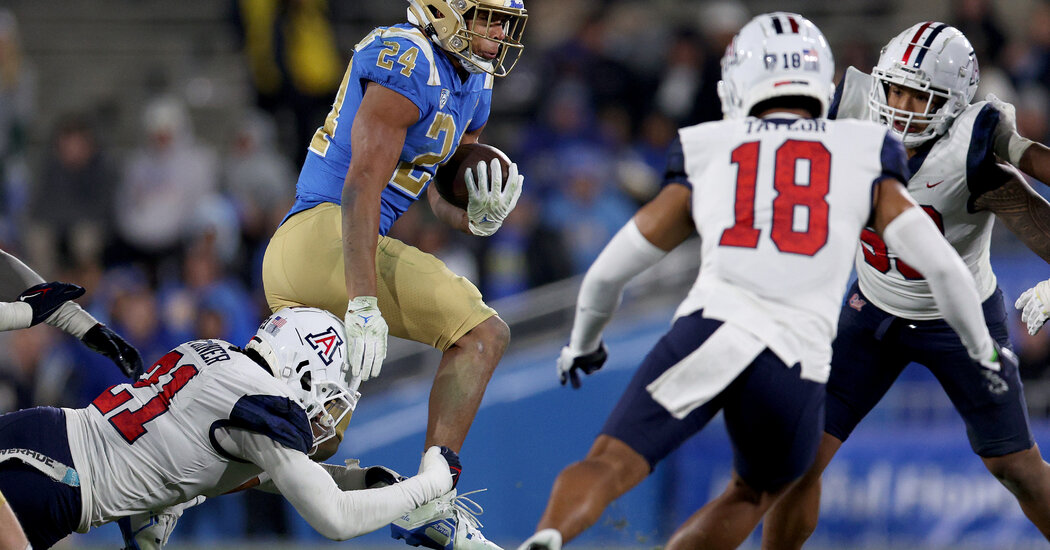
And a perhaps even more formidable opponent awaits.
State Senator Nancy Skinner, whose initial foray into college athletics lawmaking kicked off a nationwide frenzy of legislation allowing athletes to earn money from endorsements, is considering a bill that she says would address extensive travel across the country that she says unnecessarily interferes with athletes’ pursuit of an education.
She said the regents’ decision will inform her next move.
“U.C.L.A. jumping on the offer of the Big Ten reinforces that college athletics is just about business, it’s not about the students,” Skinner, a Democrat whose district includes Berkeley and who graduated from U.C. Berkeley, said in a phone interview. “It’s money for the coaches, it’s money for the television networks and what it doesn’t factor is the effects on the students.”
What we consider before using anonymous sources. Do the sources know the information? What’s their motivation for telling us? Have they proved reliable in the past? Can we corroborate the information? Even with these questions satisfied, The Times uses anonymous sources as a last resort. The reporter and at least one editor know the identity of the source.
Her target is an N.C.A.A. rule that limits athletes to no more than 20 hours per week of team activities, but does not include time spent on travel — something that is expected to at least double for the L.A. schools for conference competition in the Big Ten — and counts games as three hours against the limit. “The 20-hour rule is a farce,” she said.
(In the survey of athletes, 83 percent of women cited increased travel as their greatest concern. Men also cited it as their greatest concern, at 65 percent. The next greatest concern was missing class; 75 percent for women, 42 percent for men.)
While the California constitution grants the university system some autonomy from the legislature, a bill might be crafted to ensure that athletes spend a certain number of hours on their sport — including travel. The N.C.A.A. constitution says that universities must abide by state laws.
Skinner, who maintained that athletes’ ability to profit off their fame was a civil rights issue, said the weight of U.C.L.A.’s move to the Big Ten is being placed particularly on two groups: Black athletes whose graduation rates, while improving, are lower than any other cohort, and women, whose sports are being dragged along in a decision that is primarily about football.
(In figures released by the N.C.A.A. on Tuesday for Division I programs, Black athletes over the last four years had a four-year graduation rate of 80 percent, compared with 93 percent for white athletes and 87 percent for Latino athletes. Black men had a 76 percent graduation rate.)